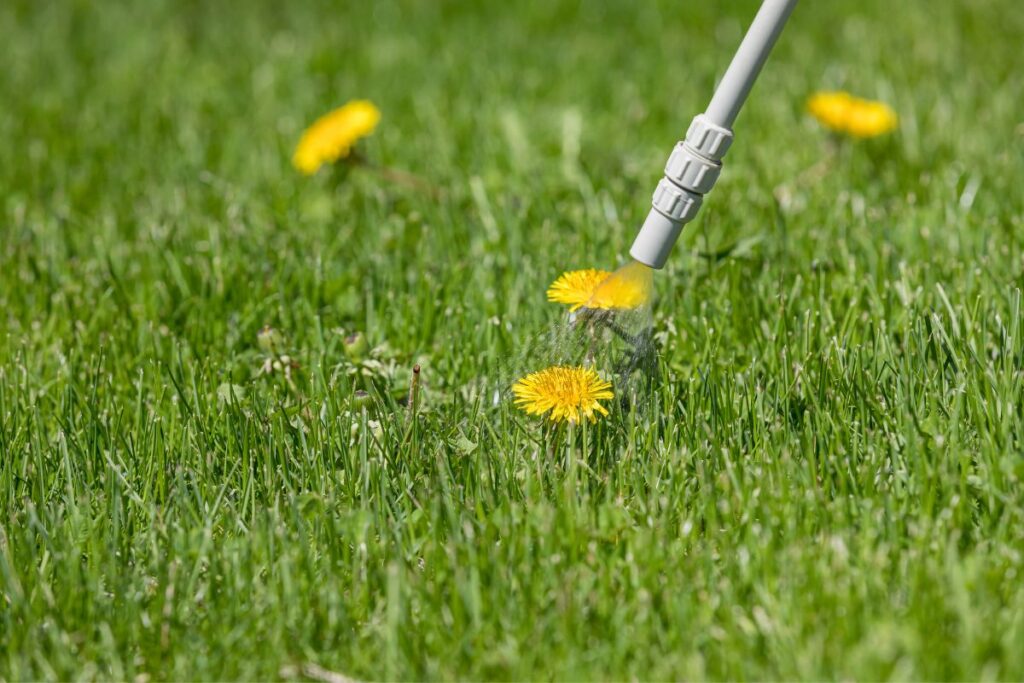The Importance of Weed Killer and Why You Need It
Picture this: you’ve spent hours tending to your garden, planting beautiful flowers and lush greenery, only to find that pesky weeds have invaded your slice of paradise and turned into a grotesque warzone. Well, the good thing is you won’t be needing that arduous labor you’ve been fretting about if you simply visit this handy weed killer article, as the right weed killer can save the day and keep your garden looking fabulous.
In this action-packed adventure, we’ll help you conquer those unruly weeds that threaten your garden’s serenity and beauty, so buckle up and join us as we embark on a journey into the wild world of weed wipeout.

A World of Weed Killers: Types and Uses
Before we dive into specific needs, let’s get acquainted with the main and major types of weed killers and what they’re best used for:
Pre-emergent weed killers – These are the fortune-tellers of the weed-killing world as they predict future weed growth and stop it before it even starts, which actually is best for keeping annual weeds at bay. These pre-emergent weed killers should be applied in early spring.
Post-emergent weed killers – These are emergency services of weed control as these killers swoop in to save the day when weeds have already sprouted. They are ideal for tackling perennial weeds and should be applied when the weather is warm and dry.
Selective weed killers – The snipers of weed warfare work to target specific weeds while leaving your beloved plants unharmed. They work well on lawns where you need to eliminate weeds without damaging the grass, which can be very handy when you know what you’re doing.
Non-selective weed killers – The “scorched earth” approach to weed control as these weed killers show no mercy, annihilating all plant life in their path. Use non-selective weed killers for clearing large areas or stubborn weeds, but be careful not to harm desirable plants as they have a “carpet bombing” kind of effect.
Tips for Identifying the Right Weed Killer for Your Needs
To choose the best weed killer for your specific needs, take special consideration of the following:
Know your enemy – Identify the weeds you’re dealing with as different weed killers work on different types of weeds, so knowing your foe is essential.
Assess the situation – Determine if you need a pre- or post-emergent weed killer based on whether the weeds have already appeared or if you’re trying to prevent their growth.
Protect your allies – If you have desirable plants nearby, opt for a selective weed killer to avoid unintended casualties.
Be mindful of the environment – Consider eco-friendly options, like organic weed killers, that won’t harm the environment or pose a risk to pets and children.
Frequently Asked Questions (FAQ)
Q1: Are there any natural alternatives to chemical weed killers?
A: Absolutely, as nature has its own arsenal of weed-fighting weapons. Some popular natural alternatives include vinegar, boiling water, salt, and corn gluten meal. But keep in mind that these eco-friendly options may require a bit more patience and persistence compared to their chemical counterparts, which in most cases, are faster.
Q2: How can I apply weed killers safely?
A: Safety first, fellow gardeners and always read and follow the label instructions carefully. Wear protective clothing like gloves, long sleeves, and goggles when applying weed killers. Keep pets and children away from the treated area until it’s completely dry or as recommended by the product label, as some products can be toxic, poisonous or even corrosive.
Q3: How often should I apply weed killers?
A: The application frequency depends on the weed killer type and the severity of your weed situation. Pre-emergent weed killers are typically applied once or twice a year, while post-emergent ones may need more frequent applications. You should always follow the manufacturer’s guidelines for best results and your own safety.
Q4: Can I use weed killers in my vegetable garden?
A: Yes, but choose wisely or opt for organic or selective weed killers that won’t harm your delicious veggies. If you’re unsure, read the label for any restrictions or waiting periods before harvest.
Q5: What if the weed killer doesn’t work?
A: It shouldn’t be a big worry if a weed killer doesn’t seem effective in most cases. Simply double-check if you’ve chosen the right type for your weed situation. Although you should ensure you’re applying it correctly and under the right weather conditions, and if all else fails, consider trying a different product or consult a local gardening expert for advice.
Conclusion: Choosing the Best Weed Killer for Your Garden
Armed with this knowledge, you’re ready to wage war on weeds and reclaim your garden. Remember to identify the type of weeds you’re dealing with, assess your situation, protect your plants, and consider the environmental impact of your chosen weed killer. Now go forth, brave gardener, and show those weeds who’s boss but err on the side of caution when handling chemicals!
